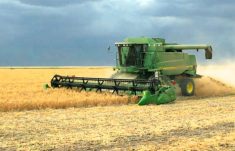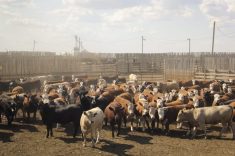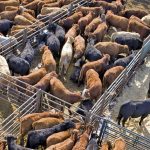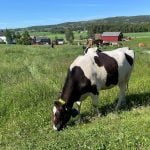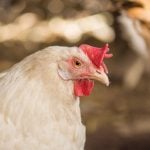For the week ending November 2, Western Canadian yearling and calf markets were relatively unchanged from seven days earlier. Strong demand continues to support the feeder complex at historical high prices.
The weather has been optimal for transportation while unweaned calves have experienced less stress through the feedlot adjustment period. The last month has been dryer than normal across the Prairies, which has encouraged cow calf producers to market calves. Feed and forage sources in Alberta are low and hay is expensive.
The calf quality can be quite variable in these dryer pockets of central and northern Alberta resulting in a diverse price structure. Alberta packers were buying fed cattle on a dressed basis at $403-$405/cwt delivered ($242-$244/cwt live basis). Breakeven pen closeouts are in the range of $253-$257/cwt. After a profitable summer, margins have slipped back into negative territory.
Read Also
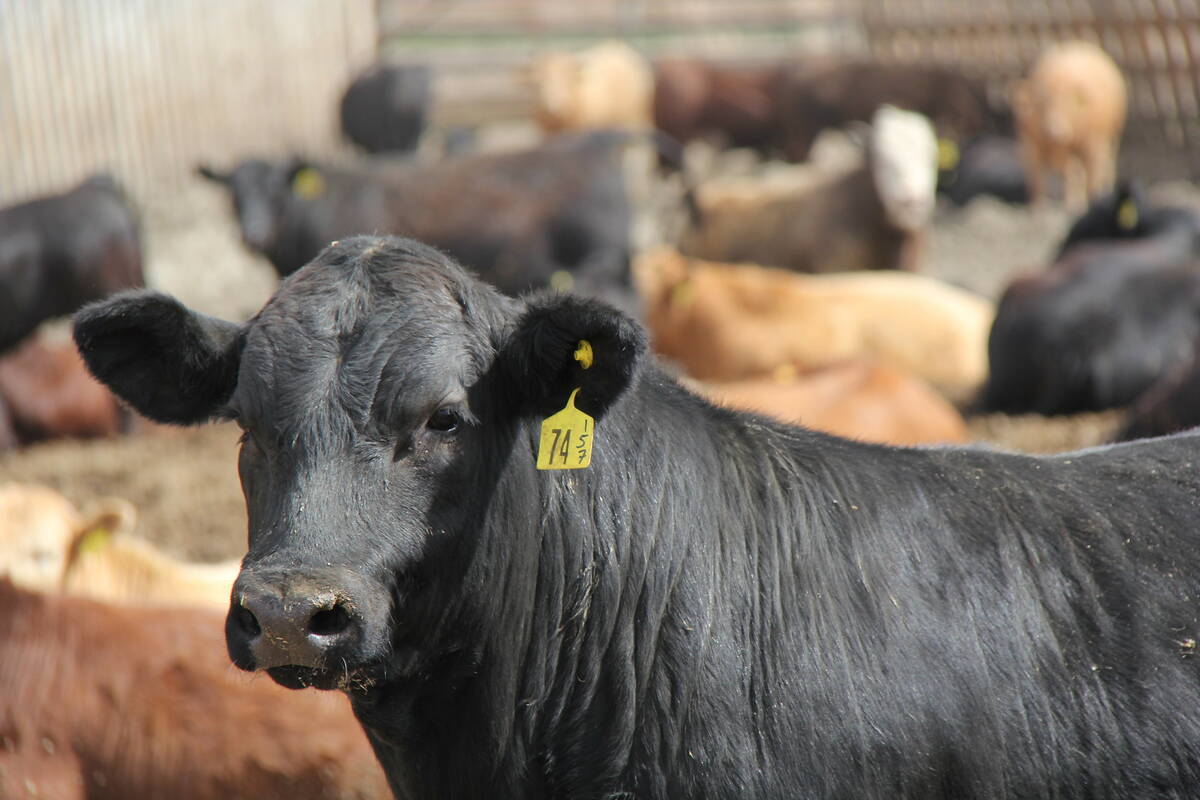
U.S. livestock: Feeder cattle hit record high on tight supply, strong cash prices
Chicago | Reuters – Chicago Mercantile Exchange feeder cattle futures scaled to a record high on Wednesday on strong cash…
In central Alberta, a small group of background tan heifers weighing 1005 pounds on barley and silage diet with full processing data sold for $294. In southern Alberta, mixed steers off grass weighing just over 900 pounds traded for $323 and mixed heifers straight off pasture averaging 910 pounds apparently traded for $305. In central Saskatchewan, Angus-based yearling steers off grass weighing 820 pounds supposedly traded for $364. Charolais yearling grass fed heifers averaging 860 pounds apparently sold for $321. At the Beaverlodge sale, a handful of mixed steer calves weighing 800 pounds sold for $336.
South of Edmonton, a small package of mixed steers weighing 770 pounds off cows, with a grass and silage diet and full health data traded for $365. In southern Manitoba, larger frame Simmental-blended steers weighing 720 pounds reportedly sold for $380. North of Calgary, Charolais-based heifers averaging 700 pounds off cows and pasture were valued at $344.
Near Saskatoon, black steers coming off cows and grass weighing 658 pounds were last bid at $383 and black heifers around 648 pounds reportedly ran the bell at $346. At the Killarney sale, Charolais steers weighing 660 pounds were quoted at $410 and the same market report had a package of Charolais heifers weighing 656 pounds reaching up to $358.
In ecntral Alberta, Angus-Simmental blended steers around 560 pounds off cows and grass with full processing data sold for $430. Southeast of Calgary, black Limousin-based steers weighing 510 pounds reached up to $470. In central Saskatchewan, black Angus based steers weighing 500 pounds traded for $465 and similar quality and weight heifers supposedly traded for $400.
The market is in a very unique situation as many feedlot operators are extremely bullish on the live cattle futures for the summer of 2025. U.S. third quarter beef production is expected to be down 350 million pounds from the third quarter of 2024.
— Jerry Klassen is president and founder of Resilient Capital, specializing in proprietary commodity futures trading and market analysis. Jerry consults with feedlots on risk management and writes a weekly cattle market commentary. He can be reached at 204-504-8339 or via his website at ResilCapital.com.





